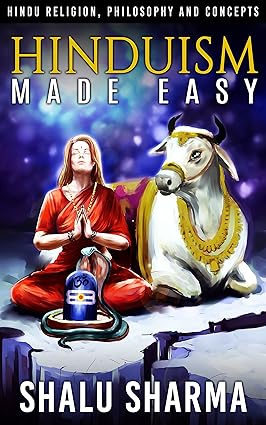Hinduism is one of the world’s oldest religions, with a history spanning over 4,000 years. It is not a single unified belief system, but a collection of diverse philosophies, rituals, and traditions. Central concepts include dharma (living a righteous and ethical life), karma (the law of cause and effect), samsara (the cycle of birth, death, and rebirth), and moksha (liberation from this cycle).
Hinduism has a rich pantheon of gods and goddesses, each representing different aspects of life and the universe. Commonly worshiped deities include Vishnu (the preserver), Shiva (the destroyer and transformer), and Durga (the warrior goddess). Worship often involves rituals such as offerings, prayers, and chanting, which can be seen in temples and homes across India.
Festivals are an important part of Hindu life. Major celebrations like Diwali (Festival of Lights), Holi (Festival of Colors), and Navratri (nine nights of devotion) reflect spiritual, seasonal, and cultural significance. Pilgrimages to sacred sites, such as Varanasi, Rishikesh, and Tirupati, are also common.
For travelers, it’s important to observe respect in temples and holy places: dress modestly, remove shoes before entering, and follow local customs. Understanding basic Hindu practices and symbols can greatly enrich your experience of India’s spiritual and cultural landscape.
As one of the world's oldest and most diverse religions, Hinduism offers a rich tapestry of beliefs, practices, and philosophies. For travelers visiting India, understanding the basics of Hinduism can enhance your experience and foster deeper connections with the culture and people.
Core Concepts
-
Dharma: Represents duty, righteousness, and living in harmony with cosmic law.
-
Karma: The principle of cause and effect, where one's actions influence future circumstances.
-
Samsara: The cycle of birth, death, and rebirth.
-
Moksha: Liberation from the cycle of samsara, achieved through spiritual knowledge and self-realization.
Deities and Worship
Hinduism encompasses a vast pantheon of deities, each embodying various aspects of the divine. Commonly worshipped deities include:
-
Brahma: The creator.
-
Vishnu: The preserver.
-
Shiva: The destroyer and transformer.
-
Lakshmi: Goddess of wealth and prosperity.
-
Durga: Warrior goddess symbolizing strength and protection.
Worship practices vary widely, from elaborate temple rituals to simple home prayers. Offerings of flowers, incense, and food are common, and it's customary to remove shoes before entering temples.
Festivals and Celebrations
India's calendar is filled with vibrant Hindu festivals, each with its own significance:
-
Diwali: The Festival of Lights, symbolizing the victory of light over darkness.
-
Holi: The Festival of Colors, celebrating the arrival of spring and the triumph of good over evil.
-
Navaratri: A nine-night festival dedicated to the worship of the goddess Durga.
Participating in or observing these festivals can provide profound insights into Hindu culture and spirituality.
Pilgrimages and Sacred Sites
India is home to numerous sacred sites, many of which are important pilgrimage destinations:
-
Varanasi: One of the oldest cities in the world, situated on the banks of the Ganges River, considered the holiest city for Hindus.
-
Tirupati: Home to the famous Venkateswara Temple, attracting millions of devotees annually.
-
Rishikesh and Haridwar: Revered for their spiritual ambiance and proximity to the Ganges.
Visiting these sites offers a glimpse into the spiritual heart of Hinduism.
Further Reading: Hinduism Made Easy
For those interested in delving deeper into Hinduism, Hinduism Made Easy: Hindu Religion, Philosophy and Concepts by Shalu Sharma provides a clear and concise introduction. The book covers essential topics such as:
-
Fundamental beliefs and practices.
-
The significance of sacred texts like the Vedas and the Bhagavad Gita.
-
An overview of major deities and their roles.
-
Insights into rituals, festivals, and pilgrimages.
This accessible guide is ideal for beginners seeking to understand the core aspects of Hinduism. It is available for purchase on Amazon.



No comments:
Post a Comment
Leave your comment below